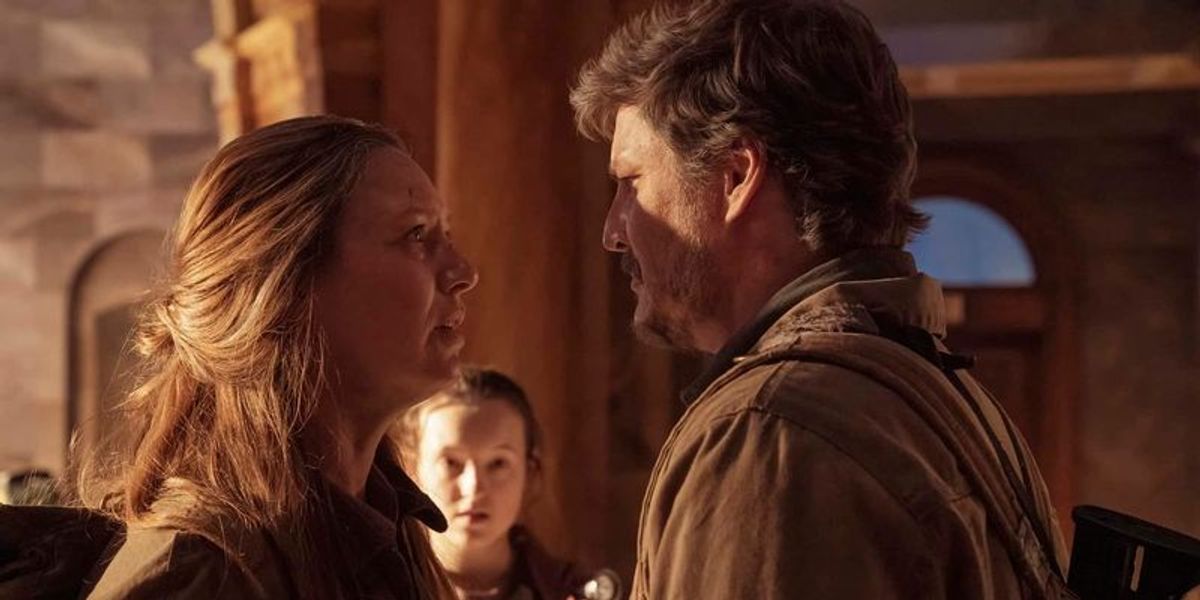The following contains spoilers for The Last of Us Season 1, Episode 2, "Infected," which debuted Sunday, Jan. 22 on HBO.
Spoilers have become a hot topic in popular media. Thanks to the internet, it's harder than ever to avoid discussion and reveals for new films and TV shows almost from the moment they're released. Some spoilers can be devastating (such as the infamous example of Darth Vader being revealed as Luke Skywalker's father.) However, simply knowing that something will happen shouldn't be enough to ruin a story. A good story isn't just a combination of plot occurrences; it's a specific unfolding of information and character that leads the viewer on a journey.
The Last of Us is a perfect example of how spoilers aren't a threat to how much a story can be enjoyed. The Last of Us video games spiked in sales after the TV series' wildly successful first episode. Those flocking to the game are obviously going to discover the plot alongside the TV show. Those who have played the game already know the major plot points yet contributed to record-breaking viewership numbers for HBO. Spoilers won't ruin this series' story -- and others could follow its lead.
How The Last of Us Renders Spoilers Irrelevant
In The Last of Us Season 1, Episode 2, "Infected," Joel, Tess and Ellie are forced to go through a museum toward the Capitol Building where they are to meet up with the Fireflies. Tess and Joel describe it as a path to almost certain death. When they enter the building, the tone has been set regardless of whether the viewer knows what's going to happen or not. When they do inevitably encounter clickers, the physical appearance of the creatures is so horrifying that not even visual spoilers could take away from their impact on the viewer.
Audiences in the know shouldn't be worried about Joel or Ellie -- yet they are because the atmosphere and tension of the scene are so effective. Rationally knowing they are safe isn't enough to override the emotional reaction to the real threat of danger they are in. Similarly, knowing that Tess is doomed to die doesn't take away from the impact of her death. Nor does it undercut her sacrifice in any way because Tess sacrificing her final moments to give Joel and Ellie a head start is still meaningful.
The Last of Us Helps Set a New Spoiler Precedent
The Last of Us isn't the only example of why spoilers aren't actually that big of a deal. Knowing that Andrew Garfield was in Spider-Man: No Way Home did nothing to undercut the excitement generated by his actual MCU appearance. One of the reasons Avengers: Endgame was so effective was the moment in which all of the previously dusted heroes returned to join the fight against Thanos. Fans being aware of who would come back did not dampen the emotional impact of seeing the characters united for the final battle. Now The Last of Us has shown that approach can also work for TV as well.
The Last of Us Season 1, Episode 2, "Infected" contained some major plot points that audiences were already aware of, but they didn't destroy the final product. The episode was still worth watching and had meaning even while knowing or at least having a good idea of what was going to happen. While there will always be spoilers and there will always be people who prefer to avoid them, they don't have to be feared anymore -- not if the story they're a part of is written and acted well enough.
The Last of Us airs Sundays at 9:00 p.m. on HBO and streams on HBO Max.


